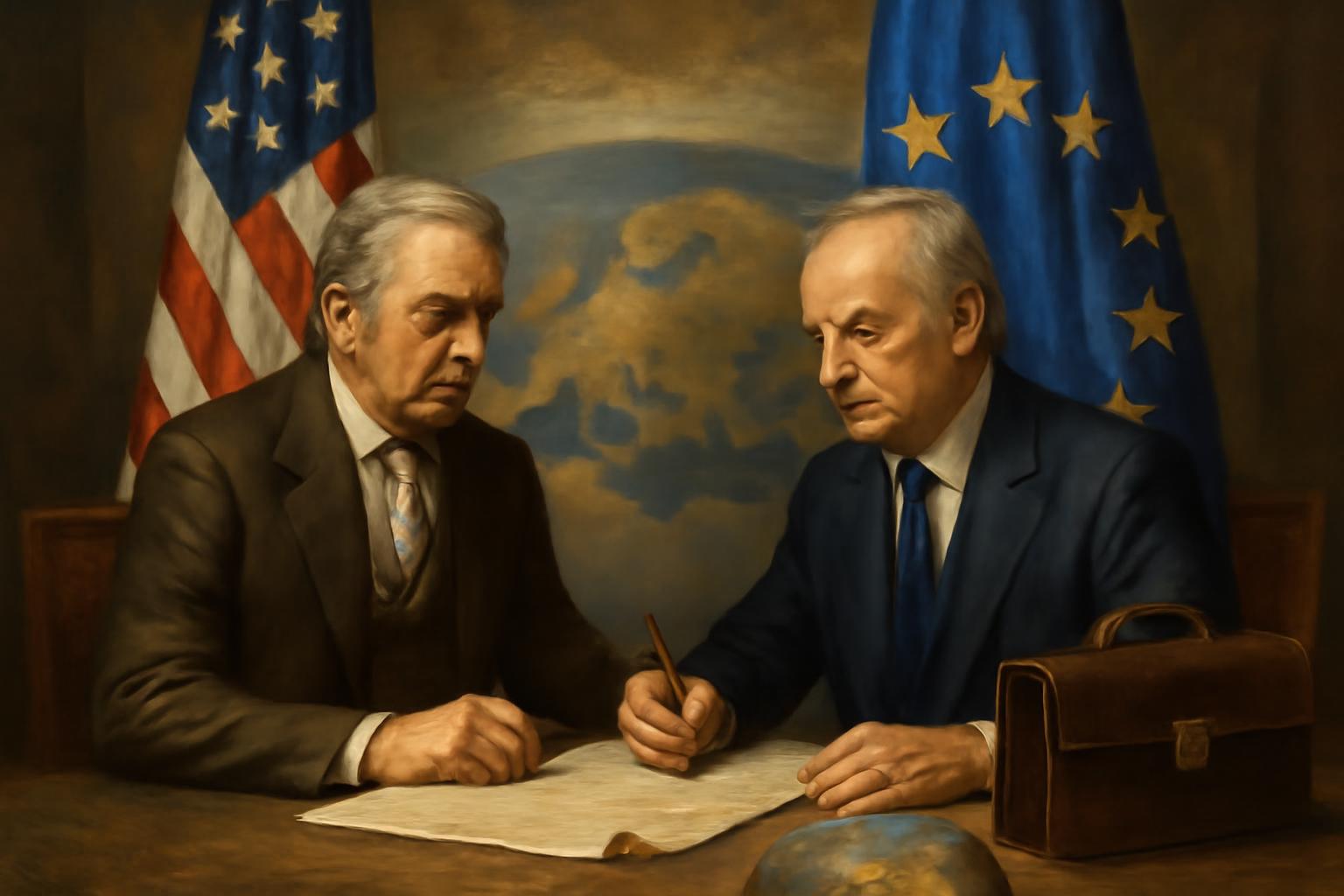Delightful, really, to watch a so-called grand bargain dissolve into a chorus of boasts, whispering declarations, and a stubborn missing page. The core tale is simple enough: the man in the White House trumpets a “big deal” with Europe on tariffs, yet the accord remains unbinding because a key joint declaration has not been drafted or signed. The current tariff landscape is lopsided and ugly to the eye of anyone who favors clarity: most EU products entering the United States face a 15 percent tariff, while aluminum, steel, and copper derivatives sail in at a punitive 50 percent; by contrast, a great swath of American goods can waltz into the EU without duties at all. The EU, for its part, promises a heroic sum—about $600 billion in investments in the United States and up to $750 billion in energy purchases by the end of the president’s term—though, naturally, no one should mistake promises for actual cash flowing across the Atlantic. The missing joint declaration is the hollow stone of this edifice; even if one emerges, there remain a multitude of terms to negotiate, and chatter insists the United States sought special concessions for large tech firms in exchange for loosening regulatory tools such as the Digital Services Act. The EU will have none of that, insisting sovereignty over digital, health, and safety rules cannot be compromised, with the Commission declaring the DSA and DMA non-negotiable. The whole enterprise lately has resembled a ping-pong match: volleys of rhetoric, parliaments to be consulted, and still more questions about whether wine and spirits will ever glimpse lower tariffs. Hamburg’s trade volumes already bite the dust—roughly a one-fifth drop—under the double pressure of policy dithering and a strong euro. In short, the promised deal has not become binding; the next step is a jointly signed declaration, after which a forest of details will still have to be settled.
One would think that two colossi could conjure a deal with a flourish, yet here we witness an exercise in theatrical restraint. The spectacle is, frankly, beneath the standards one expects from men who pretend to steer the fate of continents. The United States touts leverage, the European Union guards its sacred prerogatives with the fervor of a cathedral custodian, and in the meantime the real economy—your ports, your manufacturers, your dockworkers—takes the brunt of the suspense. The idea that a few concessions to big tech could be traded for looser rules and faster goods flow is a fantasy fit for a finance manifesto, not for a practical treaty, and the EU’s insistence on keeping the DSA and DMA sacrosanct is, in its own way, admirable—though the result is a more arduous, less exciting forward path. If the port of Hamburg feels the bite now, imagine the other nodes along the supply chain, where uncertainty multiplies costs and delays become the currency of the day.
And what, pray tell, is the moral in this display of negotiation by diary? It is that grand rhetoric, no matter how well dressed, cannot substitute for reliable policy. The money promised will not materialize by wish alone; the tariffs will not recede merely because someone claims a breakthrough will come in a signature; the sovereignty that EU regulators defend so zealously will not bend to accommodate a shortcut for digital wiefdoms. The next sign will be a signed declaration, perhaps, but even then the real work—the long, tedious work of reconciling hundreds of pages, balancing national interests, appeasing parliaments, and keeping supply chains intact—will begin anew. Until then, the dissonance between pomp and practicality remains the dominant note, and the market—whether in Hamburg, in Berlin, or on the Atlantic docks—will listen, count, and wait for an outcome that actually feels like a deal, not a political performance.
